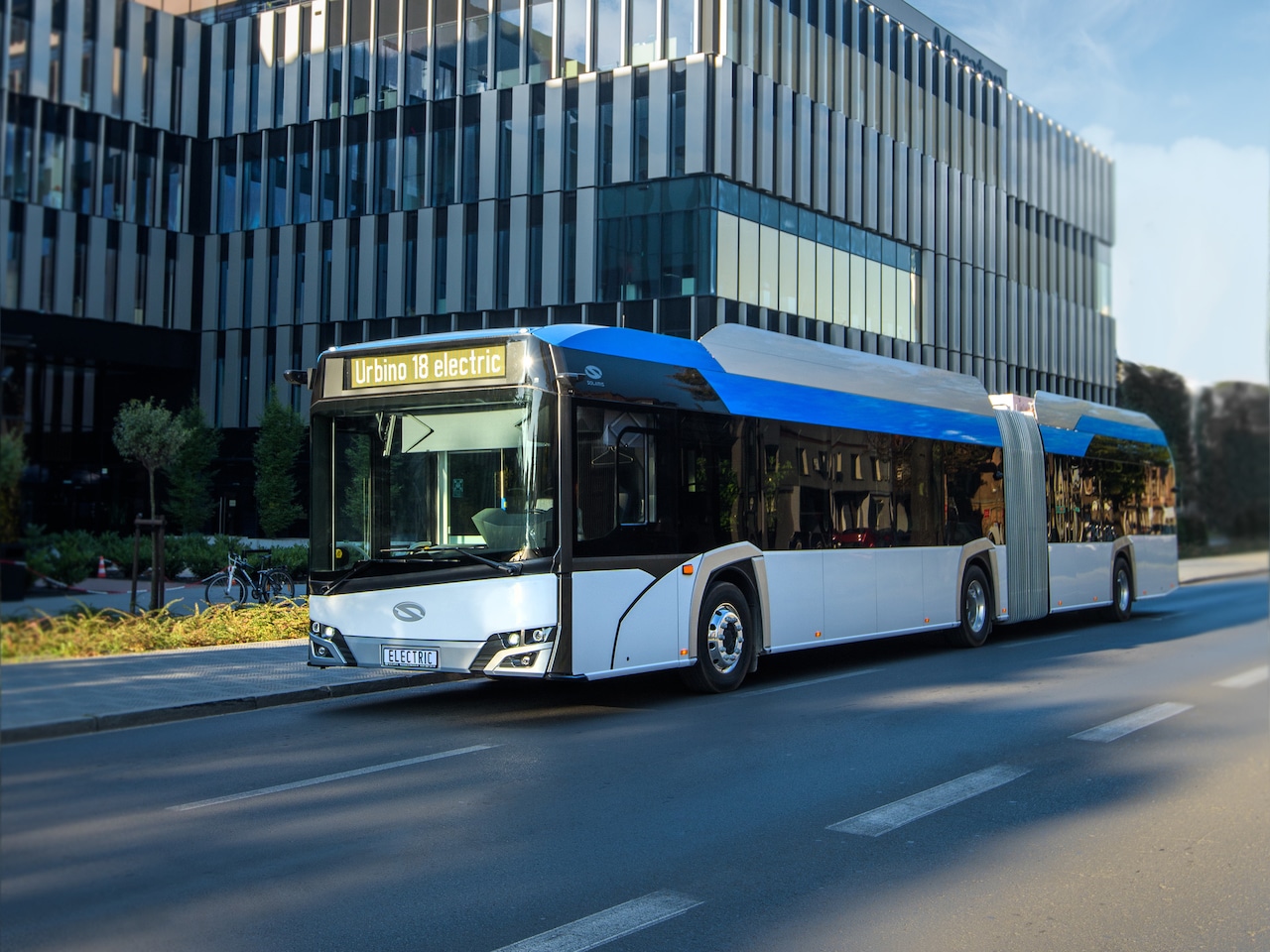Solaris has obtained the Environmental Product Declarations (EPD) for its two bus models, the Solaris Urbino 18 electric and the Solaris Urbino 12 hybrid. EPDs are a recognised and reliable source of information on the environmental profile of products.
An Environmental Product Declaration is an international eco-label that provides clients with solid data on the whole life-cycle environmental impact of a given product. Solaris has obtained its first EPDs for the Solaris Urbino 18 electric and Solaris Urbino 12 hybrid vehicles and will apply for further declarations for other products from its offering, one by one.
EPDs are a recognized and reliable source of knowledge of the environmental performance of a product. They are drawn up on the basis of an LCA (Life Cycle Assessment) study. The environmental impact assessment process takes into account all stages of the product’s life cycle: from the extraction and transportation of raw materials, through the production of components and the bus, and the transport of the finished product to the customer, to the operation, maintenance and disposal of the bus at the end of its life cycle.
To obtain an EPD, it is necessary to go through a very extensive verification process, performed by an independent expert. This assessment process is based on verifying whether the LCA analysis, which is the starting point for the preparation of the EPD certificate, has been carried out in compliance with the PCR (Product Category Rules UN CPC 49112 and 49113), the GPI (General Programme Instructions) and the ISO 14025, ISO 14040, ISO 14044 standards.
The scope of the LCA analysis is extremely detailed. For the phase, prior to the manufacturing of a given vehicle (UPSTREAM), the assessment of the environmental footprint is performed that relates to, among other things: the extraction of raw materials, the processing of basic materials used for manufacturing components (e.g. aluminum, stainless steel, polyethylene, elastomer, glass), the completion of all related processes (e.g. transport, energy, and water consumption), and the waste generated in these processes along with their management.
A similar assessment is conducted at the vehicle manufacturing stage (CORE), where the transport of the vehicle from the assembly plant to the end customer is also taken into account.
As part of the assessment of the vehicle operation stage (DOWNSTREAM), the following factors, among other things, are taken into consideration: the production and consumption of fuel or electricity during the operation phase, the production of vehicle servicing materials, the production of consumables and spare parts (based on a preventive maintenance program for road vehicles), waste from consumables and spare parts (based on a preventive maintenance program for road vehicles), and the decommissioning of the vehicle after use. The possible recyclability and recoverability rates, as per ISO 22628:2002, are also determined at this stage.
“The environmental product declaration is not a typical certificate. It should be perceived as a document communicating information about the environmental impact of the product at the various stages of its life cycle: from the extraction of raw materials, through the manufacturing of components, transport, assembly, use and maintenance, to its disposal. EPDs confirm the manufacturer’s commitment to measuring and reducing the environmental impact of their products and allow them to report this impact in a very transparent way. Importantly, EPDs are a completely voluntary activity carried out by manufacturers, but increasingly they are required by many public transport operators. This allows our end customers, i.e. public transport operators, to be guided, when making their purchasing decisions, not only by the price, the vehicle’s technical parameters or warranty and servicing conditions but also by the impact of the product on the natural environment. Thus, the Environmental Product Declaration supports informed environmental choices and motivates manufacturers to manage their supply chains and production processes in an even more responsible way”, said Javier Calleja, CEO of Solaris Bus & Coach.
Thanks to the detailed LCA calculations, which are necessary to obtain the EPD, manufacturers acquire a lot of vital information on the environmental impact of their product throughout its entire life cycle. On the basis of this data, they can identify areas in their value chains where there is still potential for minimizing negative environmental impacts. LCA calculations show, for instance, how crucial the place where e-vehicles are operated is for assessing their ecological profile. The same e-bus operated in Sweden or France leaves a much lower environmental footprint, due to the energy mix in these countries than in Poland.


